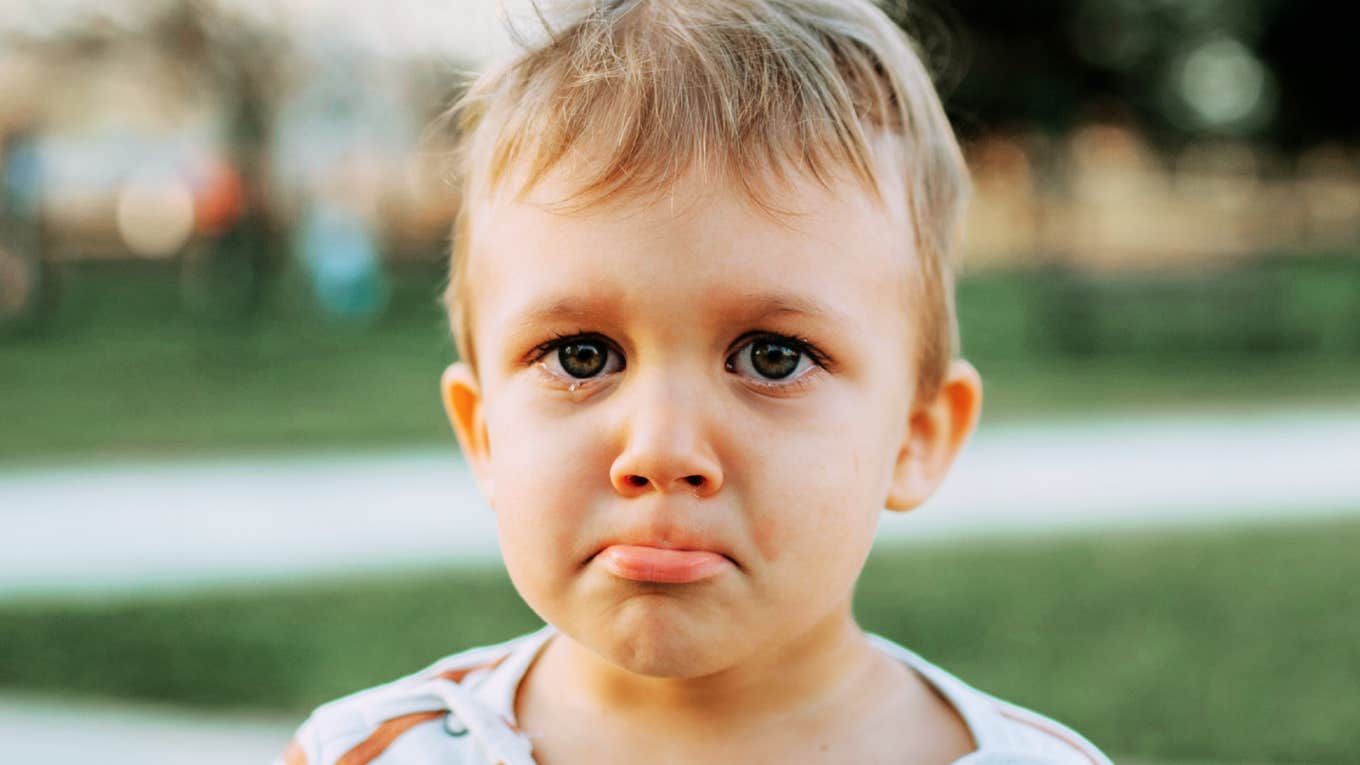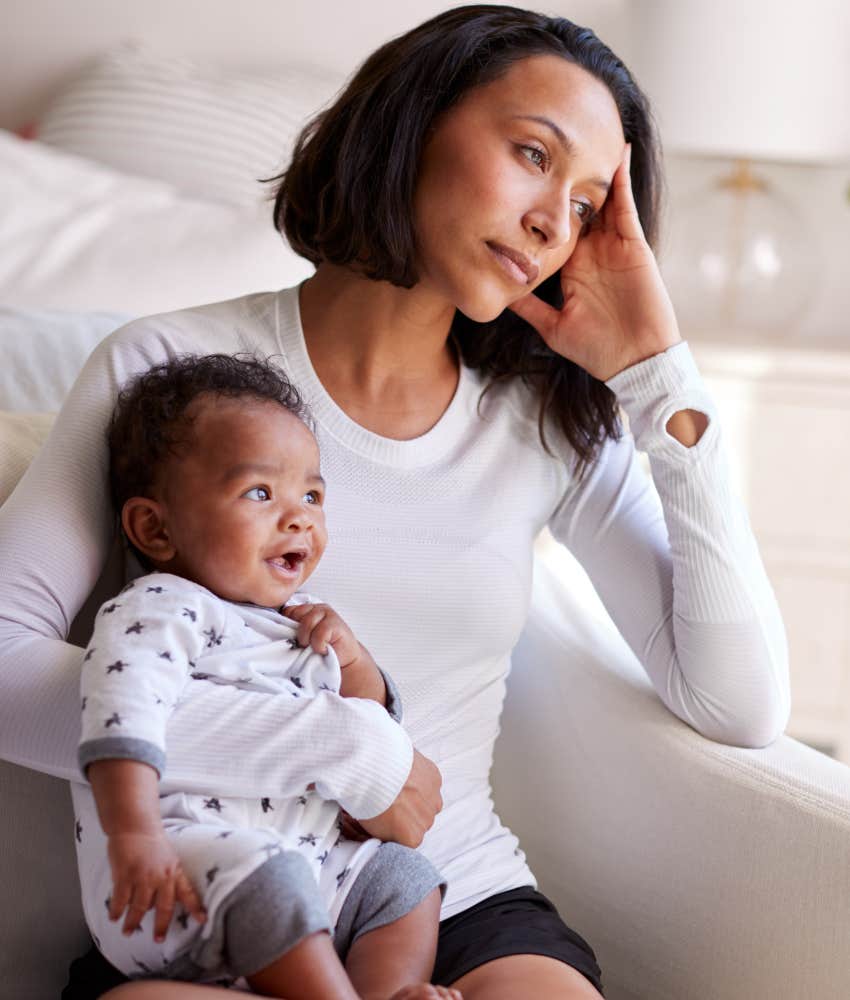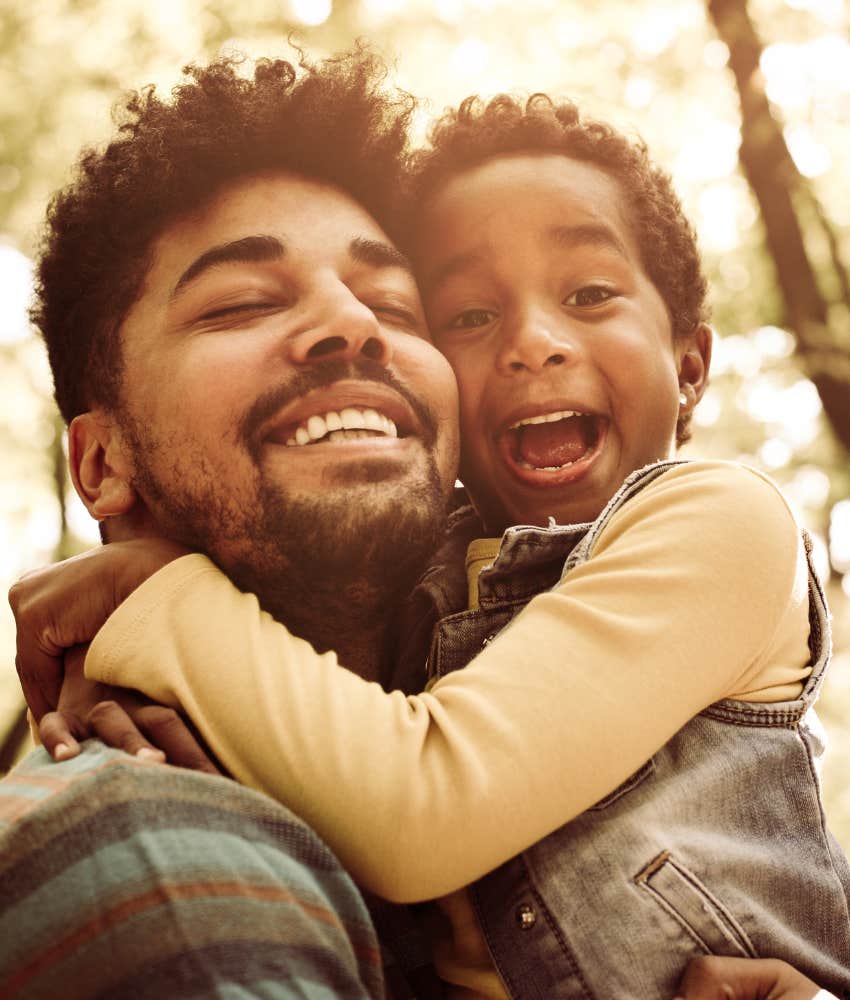3 Ways Parents Unknowingly Raise Children Who Don’t Feel Safe
These habits accidentally teach kids the world isn't a safe place to land.
 Getty Images | Unsplash
Getty Images | Unsplash The overly independent, unsafe child is often left to their own devices in a variety of different ways, but they all result in a lack of structure and consequences. That is the hallmark of the overly independent child.
They may seem fine and think everything is fine. But in reality, they are growing up without enough limits or protection, and they end up not feeling safe in the world. This kind of upbringing is childhood maltreatment, as described by research from Stanford University. And the scary thing is, it can happen with even the best, well-meaning parents.
Here are three ways parents unknowingly raise children who don’t feel safe:
1. They repeat their parents' mistakes
These parents may do a good job in almost every other way, and they love their child. But they were raised by parents who were not tuned in enough, so they’re simply not aware they should be providing more attention, emotional awareness, and emotional support to their child.
It may not be their fault at all. They cannot give you what they never had. Blair is the envy of some of her friends at age 15 because her parents are cool, easy, and breezy, almost more like friends than parents. Blair is allowed to do almost anything she wants, with a late curfew, few rules, and few punishments. Blair feels very lucky.
2. They are weighed down by their own battles
 Monkey Business Images via Shutterstock
Monkey Business Images via Shutterstock
These parents may be working several jobs, struggling with depression or another mental or physical illness, dealing with divorce or loss, or otherwise taken up by something in their own lives that prevents them from being attuned to their child’s emotional needs.
Daniel, age 8, is struggling socially at school, as he is a target of a kid in his class who loves to make fun of him. Daniel wishes he could tell his parents, but he doesn’t feel they are available or able to help him. Daniel knows he must deal with this problem on his own.
3. They are overly wrapped up in their own needs
 Mladen Zivkovic via Shutterstock
Mladen Zivkovic via Shutterstock
These parents are so focused on themselves and their own needs that they don’t notice their child’s feelings and needs. They may be narcissistic, suffer from addiction, be overworked, or simply too self-focused to care enough about their child.
There’s a good reason that, as an adult, it’s hard to recall growing up too independent. It’s because it involves your parents’ failure to act.
They don’t often enough notice what you’re feeling and ask you about it. They don’t step in enough to help when you need it. They don’t validate your feelings enough by saying, “I understand.” As a child and as an adult, it’s much easier to remember things that happen to us. We tend not to notice what fails to happen for us.
A 2006 study on the developmental consequences of child neglect showed, "potential negative outcomes for neglected children, including behavior problems, low self-esteem, poor school performance, and maladjustment/psychopathology."
Serena is graduating from high school in a few weeks. She hasn’t completed her college applications because she finds them very overwhelming. Secretly, she’s decided to get a job after graduation instead to avoid the fear of applying to college. Every day, she experiences waves of anxiety that she hasn’t told anyone about.
The overly independent child may be left to their own devices in a variety of different ways. It may be a lack of structure and consequences, like Blair's experience, a lack of protection and attention like Daniel is experiencing, or an emotional aloneness, like Serena, Daniel, and Blair all feel.
Jonice Webb, Ph.D., is a licensed psychologist and best-selling author of two self-help books. She specializes in childhood emotional neglect, relationships, communication issues, and mental health. Dr. Webb has appeared on CBS News and NPR, and her work has been cited by many publications.

